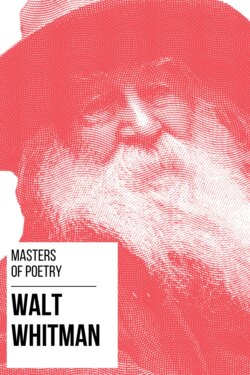Читать книгу Masters of Poetry - Walt Whitman - August Nemo, John Dos Passos, Ellen Glasgow - Страница 41
На сайте Литреса книга снята с продажи.
II
ОглавлениеThe shadow of Whitman's self-reliance and heroic self-esteem—the sort of eddy or back-water—was undoubtedly a childlike fondness for praise and for seeing his name in print. In his relaxed moments, when the stress of his task was not upon him, he was indeed in many respects a child. He had a child's delight in his own picture. He enjoyed hearing himself lauded as Colonel Ingersoll lauded him in his lecture in Philadelphia, and as his friends lauded him at his birthday dinner parties during the last two or three years of his life; he loved to see his name in print, and items about himself in the newspapers; he sometimes wrote them himself and gave them to the reporters. And yet nothing is surer than that he shaped his life and did his work absolutely indifferent to either praise or blame; in fact, that he deliberately did that which he knew would bring him dispraise. The candor and openness of the man's nature would not allow him to conceal or feign anything. If he loved praise, why should he not be frank about it? Did he not lay claim to the vices and vanities of men also? At its worst, Whitman's vanity was but the foible of a great nature, and should count for but little in the final estimate. The common human nature to which he lay claim will assert itself; it is not always to be kept up to the heroic pitch.
